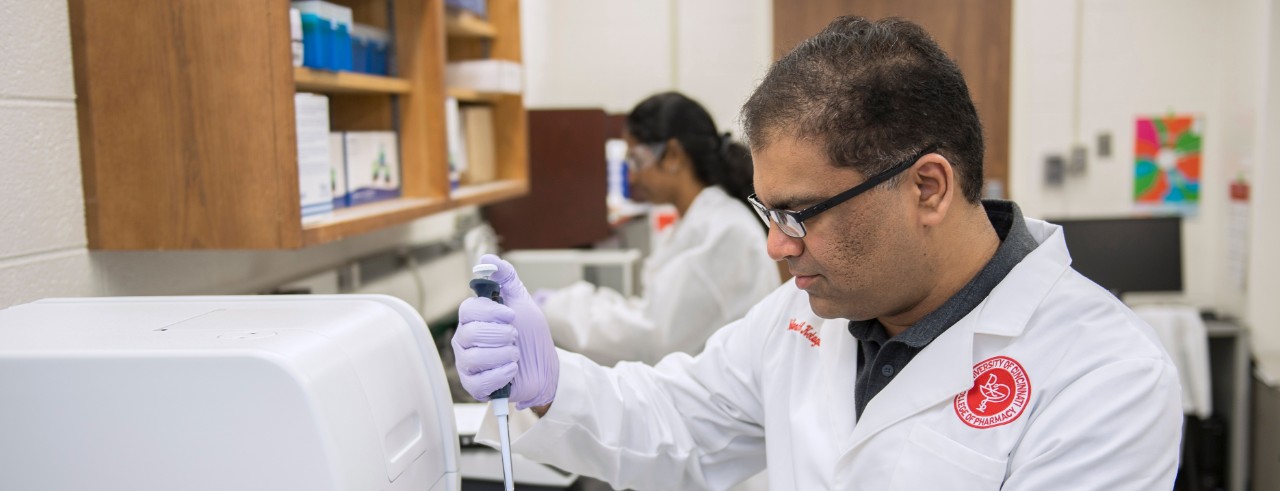
Discover Magazine: Why bacteria are the new disease fighters
Bacteria are often thought of as the "bad guys" when it comes to our health, but many good bacteria are useful and needed to perform certain functions.
Researchers at the University of Cincinnati have developed a probiotic bacteria that helps to break down cancer cell's defenses, making other treatments more effective.
Nalinikanth Kotagiri, PhD, an assistant professor in UC’s James L. Winkle College of Pharmacy and a UC Cancer Center member, told Discover Magazine that engineered bacteria help to reshape the body's immune system, enabling it to better fight diseases like cancer.
“Unlike antibody-based drugs that we take only once we have a diagnosis, these engineered bacteria can be integrated into the microbiome that’s already there,” Kotagiri said.
Read the Discover Magazine story. (Note: A web login or subscription may be needed to access the article.)
Read more about Kotagiri's research.
Featured photo at top of Dr. Kotagiri working in his lab. Photo/Colleen Kelley/University of Cincinnati.
Related Stories
Ohio could soon make breast cancer screenings more affordable
May 9, 2025
The University of Cincinnati Cancer Center's Ann Brown was featured in Local 12 and Cincinnati Enquirer reports on a bill introduced by Rep. Jean Schmidt in the Ohio legislature that seeks to eliminate out of pocket medical expenses such as copays and deductibles associated with supplemental breast cancer screenings.
Preparing students for artificial intelligence in education
May 8, 2025
Laurah Turner, PhD, associate dean for artificial intelligence and educational informatics at the University of Cincinnati's College of Medicine, recently joined the For The Love of EdTech podcast to discuss the usage of personalized learning and AI coaches to enhance educational experiences.
UC lab-on-a-chip devices take public health into home
May 8, 2025
University of Cincinnati engineers created a new device to help doctors diagnose depression and anxiety. The “lab-on-a-chip” device measures the stress hormone cortisol from a patient’s saliva. Knowing if a patient has elevated stress hormones can provide useful diagnostic information even if patients do not report feelings of anxiety, stress or depression in a standard mental health questionnaire.
